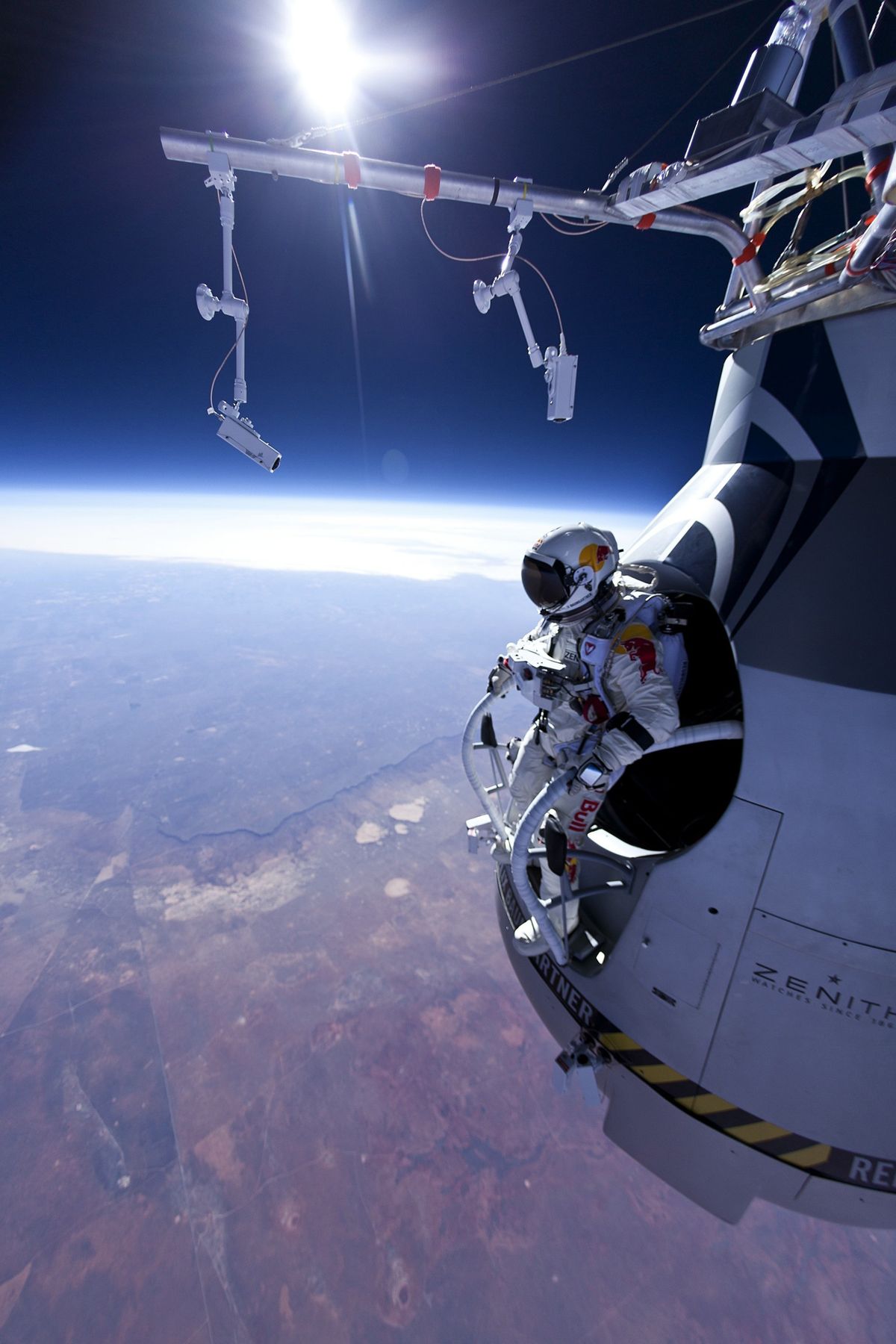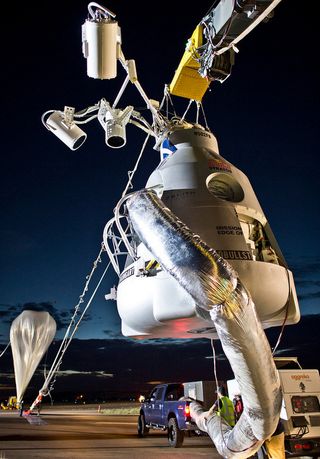Skydiver to Attempt Record-Breaking Supersonic 'Space Jump' Oct. 8

An Austrian daredevil plans to leap from nearly 23 miles above the Earth on Oct. 8 in a supersonic plunge that, if successful, will be the world's highest-ever skydive.
If all goes according to plan, a helium-filled balloon will lift off from Roswell, N.M., on Oct. 8 and carry Felix Baumgartner's custom-built capsule to an altitude of 120,000 feet (36,576 meters). The daredevil will then step out of the capsule into the void, breaking a skydiving record that has stood for 52 years.
Baumgartner's 2,900-pound (1,315 kilograms) capsule was damaged in a hard landing during a July 25 practice run from 97,146 feet (29,610 m), forcing a delay while repairs were made. But on Monday (Sept. 24), officials with Red Bull Stratos — the name of Baumgartner's mission — declared the capsule fit for launch and set Oct. 8 as the target date for the skydiver's "space jump."
The all-clear came as welcome news to Baumgartner, who is itching to go.
"I feel like a tiger in a cage waiting to get out," the 43-year-old skydiver said in a statement.
The current record for world's highest skydive stands at 102,800 feet (31,333 m). It was set in 1960 by U.S. Air Force Captain Joe Kittinger, who serves as an adviser for Baumgartner's mission. [Most Extreme Human Spaceflight Records]
If Baumgartner succeeds on Oct. 8, he will break not only that mark but also the sound barrier, becoming the first skydiver ever to fall at supersonic speeds, Red Bull Stratos officials said. During the July 25 jump, Baumgartner's top freefall speed was 537 mph (864 kph) — about as fast as a commercial airliner.
Sign up for the Live Science daily newsletter now
Get the world’s most fascinating discoveries delivered straight to your inbox.

On Oct. 8, Baumgartner hopes to etch his names in the record books for highest skydive, fastest freefall, longest freefall and highest manned balloon flight. But his mission could have scientific value as well, collecting data that could help enable high-altitude escapes from spacecraft, mission officials said.
Red Bull Stratos describes the Oct. 8 attempt as a jump from the edge of space. But space is generally considered to begin at an altitude of 62 miles, or 327,000 feet.
The team is cautiously optimistic that the weather will cooperate on Oct. 8.
"Early fall in New Mexico is one of the best times of the year to launch stratospheric balloons," mission meteorologist Don Day said.
Baumgartner and his team had originally hoped to attempt the record jump in 2010, but they were delayed by a legal challenge that claimed the idea of the dive was suggested to Red Bull by California promoter Daniel Hogan. That lawsuit has been settled out of court, and the mission is moving forward.
This story was provided by SPACE.com, a sister site to LiveScience. Follow SPACE.com on Twitter @Spacedotcom. We're also on Facebook & Google+.











